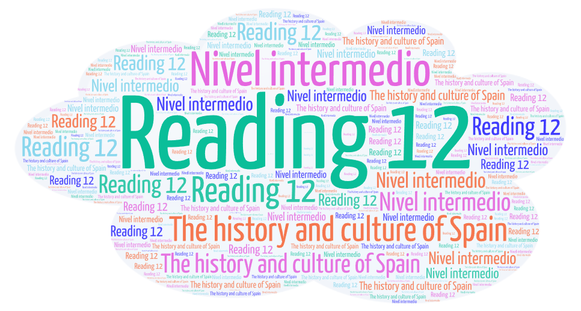Descripción: Sumérgete en el fascinante mundo de la historia y la cultura de España a través de nuestro interesante artículo. Además, después de la lectura, te espera un cuestionario desafiante para poner a prueba todo lo que has aprendido sobre España. ¡Atrévete a descubrir y aprender más sobre este hermoso país!

The History and Culture of Spain
Spain, located in southwestern Europe, is a country known for its rich history and vibrant culture. From ancient civilizations to modern times, Spain has played a significant role in shaping the world. In this reading, we will explore the fascinating history and diverse culture of this Iberian nation.
Historical Overview:
Spain's history can be traced back thousands of years. It was inhabited by various indigenous peoples, including the Iberians and Celts, before being colonized by the Romans in 218 BC. The Roman influence left behind a legacy of architecture, language, and culture, which still persists today.
The Visigoths succeeded the Romans and ruled Spain for several centuries until the Moors, a Muslim dynasty, conquered most of the Iberian Peninsula in 711 AD. The Moorish rule brought advancements in science, art, and architecture. The famous Alhambra Palace in Granada is a testament to their architectural brilliance.
In 1492, Spain underwent a significant transformation when King Ferdinand and Queen Isabella completed the Reconquista, driving the Moors out of Spain. This year is also famous for Christopher Columbus's expedition to the Americas, financed by the Spanish Crown.
Culture and Traditions:
Spain is renowned for its flamenco music and dance, which originated in the Andalusian region. Flamenco combines singing (cante), dancing (baile), and guitar playing (toque) to create an emotional and expressive art form.
Bullfighting, though controversial, is another traditional Spanish spectacle. It has deep historical roots and is considered an essential part of Spanish culture.
Spain's cuisine is diverse and delicious, with paella, tapas, and churros being some of the most iconic dishes. Spanish wines, such as Rioja and Tempranillo, are highly regarded worldwide.
Modern Spain:
In recent years, Spain has seen significant political changes, including the transition from a dictatorship under General Franco to a democratic constitutional monarchy. Spain is divided into autonomous communities with varying degrees of self-governance.
Tourism plays a crucial role in Spain's economy, attracting millions of visitors each year to cities like Barcelona, Madrid, and Seville. The country's beautiful beaches, historic landmarks, and vibrant festivals make it a popular destination.
